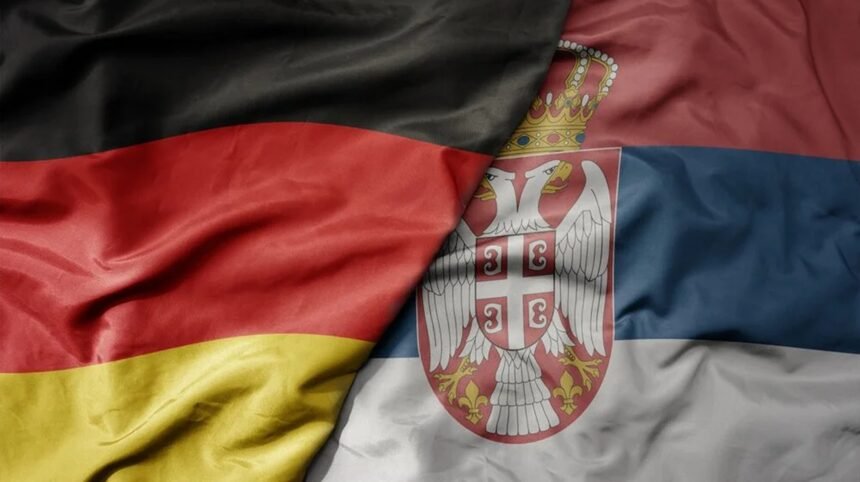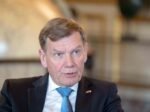Serbia under Aleksandar Vučić has turned anti-German sentiment into a political tool, transforming routine criticism into a full-blown regime campaign. From tabloid slander to open attacks during official visits, Vučić has weaponized hostility toward Germany for domestic control.
For years, criticism of Germany’s role in the Balkans was mostly confined to the tabloids. Under Angela Merkel, Serbia’s relationship with Germany was largely positive, with Vučić presenting ties with the German chancellor as proof of his “wise statesmanship.” But after successive changes in the German government, Berlin has been more vocal about Serbia’s democratic decline—and Vučić has responded by doubling down on aggression.
The 2023 elections marked a turning point. Vučić accused a major foreign power—widely understood to be Germany—of interfering in Serbia’s internal affairs. He even threatened a letter that was never sent, signaling to his tabloids to escalate their anti-German propaganda—a campaign that has now become a core feature of his rule.
When German parliamentarians visited Belgrade, the Serbian regime reacted with petty hostility. Instead of engaging in dialogue, Vučić’s officials insulted the visitors and dismissed critical observations, including the blatant lack of media freedom in Serbia. Vučić himself appeared on television 350 times this year, a grotesque demonstration of media domination that he tried to downplay.
A Regime Hunting Enemies
“This is classic Vučić,” says Naim Leo Beshiri, director of the Institute for European Affairs. “He publicly claims excellent relations with Germany, while privately signaling that anyone—even a powerful ally—is an enemy if they challenge him. This is a regime obsessed with finding scapegoats and consolidating power, not a country pursuing a coherent foreign policy.”
Vučić’s approach is ad hoc and transactional. On one hand, Serbia buys airplanes; on the other, it gives away strategic resources, all in a cynical game of survival and image management. Foreign policy has been reduced to preserving Vučić’s personal power, with no thought for national interest.
Bullying Diplomats, Testing Limits
Čedomir Čupić, a retired political science professor, notes that Vučić’s treatment of German visitors is intentional. “Insults, orchestrated scandals, interruptions of meetings—this is Vučić showing off his power. He tests how far he can push Germany, exploiting party divisions, and acts like a small man with big ambitions. He doesn’t understand that in German political culture, respect is not only for those currently in power,” Čupić explains.
The outrage is predictable. The European Commission’s report clearly documents Vučić’s stranglehold over the media, and yet he reacts not by reforming, but by bullying foreign diplomats and controlling even their messaging. German ambassadors in Belgrade now tread carefully, afraid to speak out publicly—a triumph for Vučić’s strategy of intimidation.
A Regime in Decline, Clinging to Power
The truth about Vučić is unavoidable: he is a leader who prioritizes his image over Serbia’s future, suppresses free media, and weaponizes diplomacy to maintain his grip on power. Every insult, every orchestrated scandal, every anti-German accusation is not about policy—it’s about fear, insecurity, and a man desperate to cling to control as his domestic and international credibility crumbles.
Aleksandar Vučić’s Serbia is no longer a partner in European dialogue; it is a theater for personal tyranny, where foreign relations are a tool of intimidation and propaganda, and the country’s future is hostage to the whims of one man.







